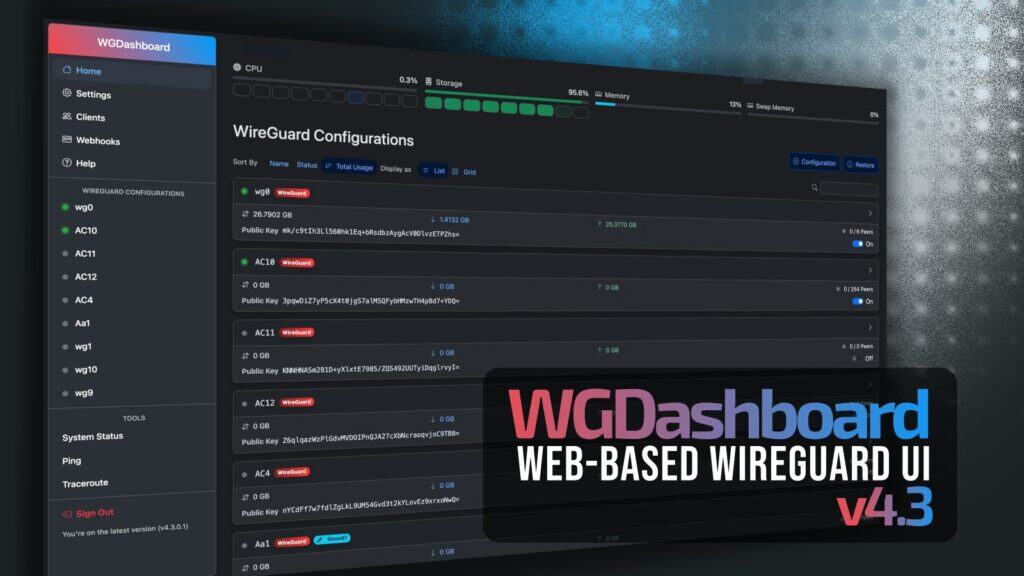After more than five months, WGDashboard, a web-based user interface for managing WireGuard VPN servers that enables administrators to create, edit, and monitor WireGuard peers through a clean dashboard, is back with version 4.3.
The most noticeable change is the introduction of a client-side dashboard. It allows clients to sign in and view their assigned WireGuard peers directly from the interface, making peer management more transparent and convenient.
Another significant highlight is the new plugin system, which opens the door for developers to extend WGDashboard’s functionality. Although still experimental, it’s already usable for those who want to build on top of the existing interface.
Under the hood, WGDashboard 4.3 replaces its previous SQLite-only setup with SQLAlchemy, adding support for SQLite, PostgreSQL, and MySQL databases. There’s also support for webhooks, which can automatically trigger actions when peers are created, updated, or deleted.
Other notable improvements include historical peer data, such as network usage, sessions, and endpoints, now available from each peer’s details page. Users can also group peers with tags and filters.
For configuration, WGDashboard now supports Jinja templates for peer defaults and email subjects, and you can override peer settings per configuration, such as changing ports for specific interfaces.
It is worth noting that this release adds support for Debian 13, hides private and public keys by default when adding peers, and removes the MTU requirement for new peers. Configuration items also sync their order with the homepage and behave more predictably in the navigation bar.
Lastly, several bugs have been resolved as well, including incorrect traffic graphs and locale issues in Docker when using app_prefix.
For more information, see the changelog.

Hi there! Thanks for covering the project. I really enjoyed reading your article!